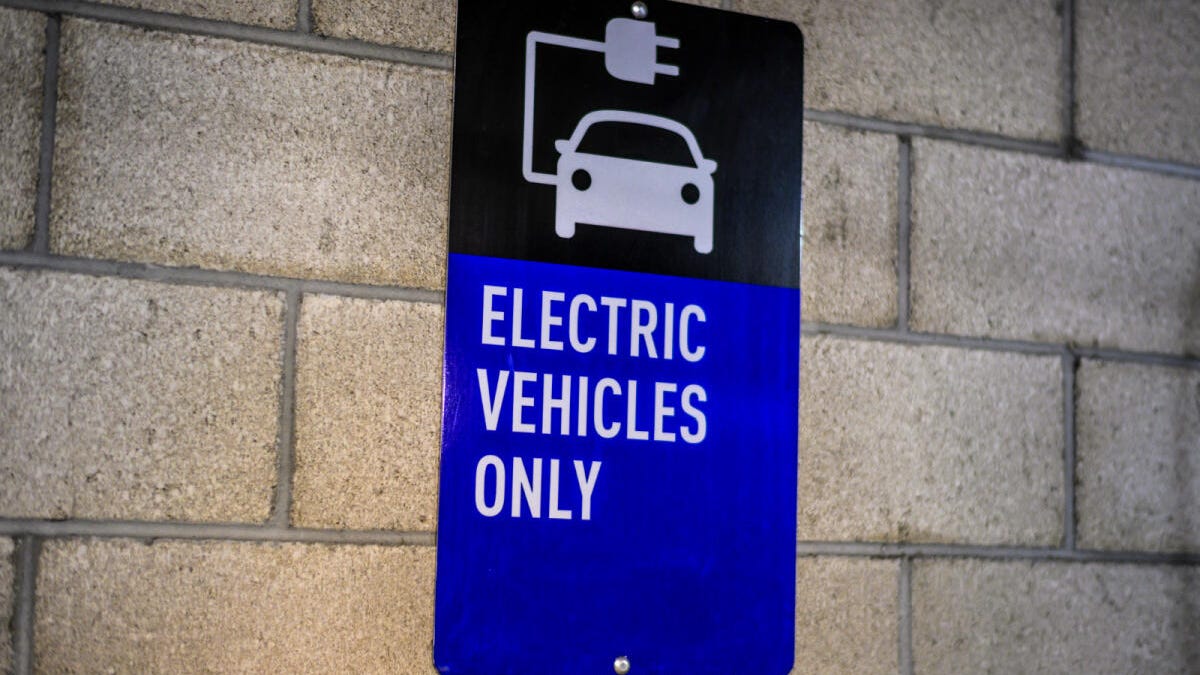Why California Is Spending Almost $2 Billion to Boost Electric Vehicles
The Golden State isn't alone: Here's what's being done to help get drivers into electric vehicles.

California is directing more money toward supporting EVs.
Sick of high gas prices? It's a good time to start thinking about an electric vehicle, especially if you live in the Golden State. California is investing $1.9 billion into alternative vehicle technologies over the next four years. The money will go toward building new charging stations, expanding hydrogen fuel cell programs and supporting ongoing research.
The investments, which state representatives say will bolster infrastructure for zero-emission vehicles across the state, are designed to reach into communities that may've felt left behind by the EV boom. California says more than 25% of new cars sold in the state are electric, and that low-income and disadvantaged communities are going to need a lot of support to catch up.
"We need to make sure that this is zero emission refueling infrastructure for everybody," California clean energy commissioner Patty Monahan said in a statement. "By investing a bulk of funds to benefit low-income and disadvantaged communities, the state is making sure communities most in need have better access to chargers and less pollution from trucks and buses."
California's investments come at a time when zero-emission vehicles are increasingly available to buy but their near future is still uncertain. US automakers have expressed concern about demand in the face of falling prices, in particular from Chinese car companies that are offering lower-cost products.
Read more: This Massive Indoor EV Hub in San Francisco Is the Nicest Charging Station I've Visited
California is hoping its investments will help juice demand so more people buy EVs. The state has earmarked $5 million for job training and manufacturing projects. It's also providing enough funding to boost the number of chargers around the state to 2.1 million by 2035, assuming there will be about 15.2 million EVs and 377,000 electric trucks and buses on the road. It's a benefit to the state, since EVs have a smaller impact on the environment than gasoline-powered cars.
Hydrogen fuel cell vehicles, meanwhile, are a rarer commodity. Few major automakers offer production fuel cell vehicles to the public right now, and there aren't many fueling stations either. California's plan will increase the number of fueling stations in the state, funding 96 public hydrogen fueling stations through the program. There are currently 61 open today, the state says, with most of them concentrated in Los Angeles and its immediate surrounding areas.
Here's everything being done to push more people to buy EVs in California, and across the US, including standardized charging, tax credits and home chargers.
Tax credits still rolling in
One key way states are encouraging people to switch to electric cars is through tax incentives that effectively give drivers money to buy a new EV. California is one of the states doing this, along with Colorado, Maine, Massachusetts, Maryland, Delaware and New York.
California is a bellwether for government policy proposals. It's pushed for climate change policies to reduce harmful emissions, is offering new ideas about internet guardrails for people under the age of 18, and in the 1990s, it was a leader in legalizing cannabis for medicinal purposes.
Standardized charging
One problem that's been holding back EVs has been charging confusion, because there are two competing standards -- the North American Charging Standard, or NACS, and the Combined Charging System, or CCS. In May 2023, Ford announced it would transition from CCS to Tesla-pioneered NACS. It was swiftly followed by General Motors, Mercedes-Benz, Nissan, Honda, Hyundai, BMW and others. With the last big holdout, Stellantis -- which owns owns Jeep, Chrysler, Dodge, Maserati, Alfa Romeo, Fiat and Ram -- announcing its switch to NACS in mid-February, the debate has effectively ended as all carmakers selling EVs in the US are now set to use the Tesla charger.
Standardized chargers will mean one less thing for you to worry about as you consider your next car purchase.
Home charging: The next step
Investments in car charging infrastructure and tax breaks don't complete all the pieces of the puzzle. Car charging at home is a challenge that some car companies themselves are looking to solve.
Hyundai, for example, recently announced a $1,100 incentive program that includes a complimentary home EV charger and $600 installation credit if you buy or lease a Hyundai EV. Honda is planning similar programs as well for its upcoming Prologue all-electric SUV, and other car companies are likely to follow suit, too.

